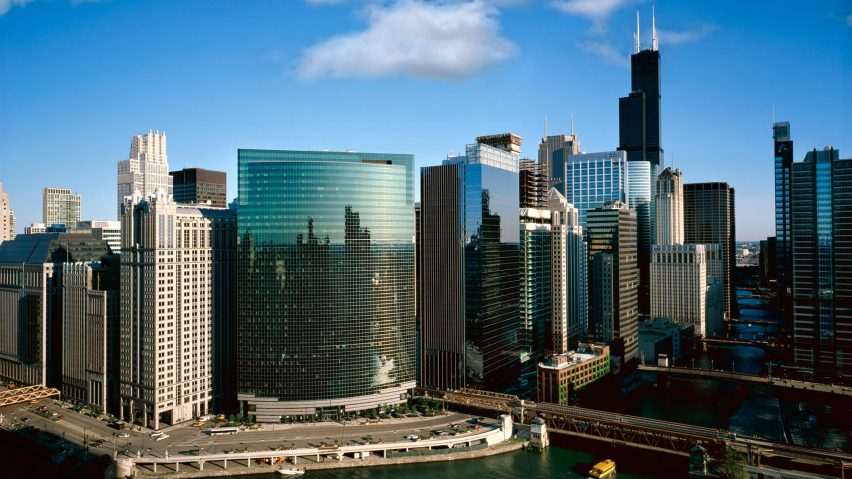American architect A Eugene Kohn, who co-founded Kohn Pedersen Fox and designed many of the world's tallest skyscrapers, has died of cancer aged 92.
Kohn's death today, following a year-long fight with cancer, was announced in a statement by his studio.
"Gene shaped the firm he co-founded into one of the most impactful architectural practices in the world through a strong belief that relationships are the foundation of success," said the studio.
"As KPF's original president and chairman, Gene shepherded the practice through many economic and cultural cycles over 40 years, leading its expansion into varied geographies and sectors."
Kohn led one of the world's most successful studios, which is responsible for designing 250 skyscrapers, including six of the world's 12 tallest towers, such as the 492-meter-high Shanghai World Financial Center and the 484-metre-high International Commerce Centre in Hong Kong.
"Gene was known throughout the architectural world for his ability to promote the services of KPF," said Kohn Pedersen Fox (KPF) co-founder William Pedersen.
"As valuable as that has been to the growth of our firm, his value within the firm, counseling our staff, has been even greater."
Born in 1930, Kohn studied architecture at the University of Pennsylvania before co-founding KPF with Pedersen and Sheldon Fox in 1976.
Over the next 45 years, Kohn led the studio and designed significant projects across the globe. Significant projects include 333 Wacker Drive in Chicago, the Petersen Automotive Museum in Los Angeles, the World Bank in Washington DC, DZ Bank in Frankfurt and airport terminals in Buffalo, Philadelphia, and Abu Dhabi.
In recent years the studio, which was the youngest to receive the AIA Architecture Firm Award, has designed numerous supertall skyscrapers including the 599-metre-high Ping An Finance Center in Shenzhen, China, and the 554-metre-high Lotte World Tower in Seoul, South Korea.
"Gene was universally respected in the community for his ability to achieve consensus," said KPF President James von Klemperer.
"His seemingly limitless interest in other human beings gave him powerful insights into the social aspect of building programs and larger urban agendas. Without his easy charm and focused intensity, such notable projects as Roppongi Hills in Tokyo, the World Bank in Washington DC, One Vanderbilt in New York, and the reinvigoration of Covent Garden in London would not have realized their full success."

